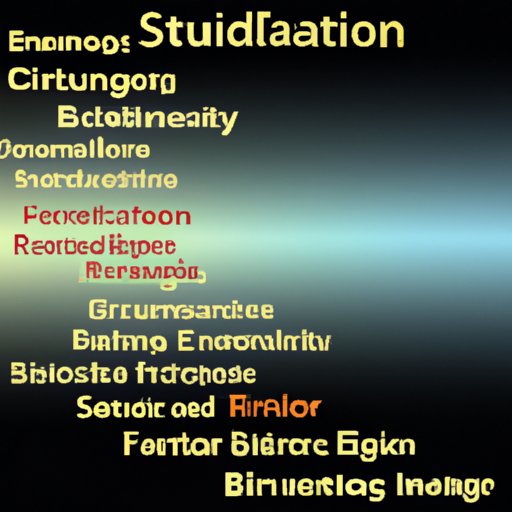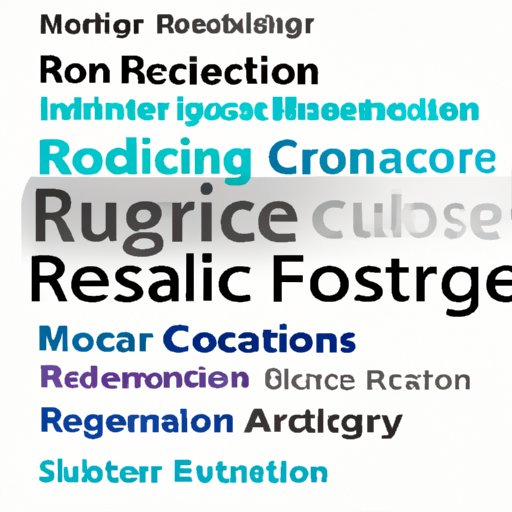Introduction
Science fiction is one of the most popular genres in literature and film. It has the power to transport readers and viewers to other worlds and explore the boundaries of science and technology. Writing science fiction can be a fun and rewarding experience, but it does come with its own set of challenges.

Overview of Science Fiction Genres
Science fiction is a broad genre that encompasses many sub-genres. These include hard science fiction, soft science fiction, space opera, cyberpunk, steampunk, alternate history, time travel, apocalyptic and post-apocalyptic stories, and more. Each of these genres has its own unique characteristics and conventions that writers must understand in order to craft effective stories.

Benefits of Writing Science Fiction
Writing science fiction offers several advantages to authors. This genre allows writers to explore the possibilities of the future, experiment with new ideas, and create fantastical worlds. It also gives them an opportunity to make social and political commentary about our current world. As author Ray Bradbury said, “Science fiction is any idea that occurs in the head and doesn’t exist yet, but soon will, and will change everything for everybody, and nothing will ever be the same again.”

Research Popular Science Fiction Genres
Before you start writing, it’s important to research popular science fiction genres. Read books and watch movies in the genres that interest you. Pay attention to the elements that make these stories successful, such as plot structure, character development, and worldbuilding. By studying the work of other authors, you’ll gain a better understanding of what it takes to write good science fiction.
Explore Classic and Contemporary Examples
In addition to researching popular genres, it’s also beneficial to explore classic and contemporary examples of science fiction. Read the works of authors such as H.G. Wells, Isaac Asimov, Ursula K. Le Guin, and Arthur C. Clarke. Watch iconic films like Blade Runner, The Matrix, and Star Wars. By studying these classic stories, you’ll learn valuable lessons from some of the greatest sci-fi authors and filmmakers.
Consider the Different Types of Science Fiction
When writing science fiction, it’s important to consider the different types of stories within this genre. Do you want to write a hard science fiction story about space exploration? Or do you prefer the more philosophical approach of soft science fiction? Maybe you’d like to combine elements from both genres into a single story. Once you decide which type of story you want to write, you’ll have a better understanding of where to start.
Develop a Story Concept and Outline
Once you’ve decided on a genre, it’s time to develop a story concept and outline. Start by considering the elements of a good story. Your story should have a clear beginning, middle, and end. It should also have interesting characters, compelling conflicts, and satisfying resolutions. Brainstorm ideas and plot points that could fit into your story. Finally, create an outline to keep you on track as you write.
Create Interesting Characters
One of the most important elements of any story is its characters. Decide who your protagonist and antagonists will be. Give your characters unique personalities and backstories. Establish goals and motivations for each character. Make sure they are well-rounded and believable. The stronger your characters, the more engaging your story will be.

Use Scientific Details to Enhance the Story
Science fiction stories often incorporate scientific details to enhance the story. Incorporate real-world science when appropriate. Explain the science behind your world and its technology. Avoid overwhelming readers with too much information. Keep the scientific details relevant to the story and use them to build suspense or add depth to your characters.
Incorporate Humor and Suspense
Humor and suspense are essential elements of any good story. Use humor to break up tension and generate laughs. Generate suspense through conflict and unexpected events. Utilize foreshadowing to hint at upcoming events. Balance humor and suspense to keep readers engaged and guessing.
Write an Engaging Opening Scene
The opening scene of your story is the first impression readers will have of your world and characters. Introduce your setting and characters in a way that hooks your reader. Create an interesting event that captures their attention and sets the tone for the rest of the story. Make it unforgettable.
Showcase Your Worldbuilding Skills
Worldbuilding is an important part of crafting a successful science fiction story. Build a unique setting with its own rules and laws. Establish rules for your universe and decide how technology and magic work in it. Add depth and authenticity to your story by incorporating realistic details. This will help draw readers into your world and make them feel like they’re truly part of it.
Conclusion
Writing science fiction can be a rewarding experience, but it comes with its own set of challenges. Research popular genres, explore classic and contemporary examples, and decide which type of story you want to write. Develop a story concept and outline, create interesting characters, and use scientific details to enhance the story. Incorporate humor and suspense, write an engaging opening scene, and showcase your worldbuilding skills. Review what you’ve learned and experiment with your own ideas. And don’t forget to invite questions and comments from readers.
(Note: Is this article not meeting your expectations? Do you have knowledge or insights to share? Unlock new opportunities and expand your reach by joining our authors team. Click Registration to join us and share your expertise with our readers.)
